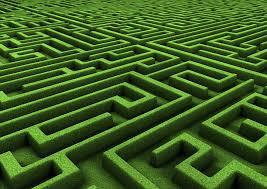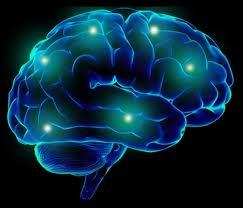
Inner Landscapes: Activists' Community-of-practice Part III.
Activist-Practitioners Share Practice Experiences
By Pamela Boyce Simms
“If you find yourself in a hole, stop digging.”* Will activists stop digging before interlocking global crises cascade to the point where the planet is unlivable? Can we let go of our 17th century understanding of the world long  enough to recognize that cutting edge science has finally caught up with the ancient sages, and apply the combined wisdom in time to throttle up and out of the nose dive we’re in? The Inner Landscapes Activists’ Community-of-Practice invites early adopters to stop digging, let go of outworn causal assumptions, and live into non-duality.
enough to recognize that cutting edge science has finally caught up with the ancient sages, and apply the combined wisdom in time to throttle up and out of the nose dive we’re in? The Inner Landscapes Activists’ Community-of-Practice invites early adopters to stop digging, let go of outworn causal assumptions, and live into non-duality.
Ancient contemplative traditions, quantum mechanics, neuroscience and digital physics offer the tools we need to take the next evolutionary step in consciousness in service to a planet in travail. Will the numbers of people willing and able to apply the tools reach the critical mass, the tipping point prior to climactic cataclysm? Activist-practitioners offer their thoughts:
Rob Brown: "Our practices (within the community of practice) are showing me that potential for “a way out” of unresourceful experience can be right there in that very experience, especially when we connect that experience to broader, more resourceful experiences.
I’m beginning to more deeply question what it means to act in the first place. We limit ourselves when our definitions of action don’t include deeper reflection and conscious connection with the basis of our being.
Making an analogy to political thought: If people can only be exploited because of the power we already exercise (there’s something to exploit in the first place), then similarly we can only experience pain/ fear/ trauma because of the consciousness we already are. But just as you can’t denounce the exercise of power in order to end exploitation, you have to expand your consciousness in order to fruitfully move beyond unresourceful experiences.
The old reductionist mindsets are the ones that gave us the lies that we’re at “the end of history”, that “there is no alternative” to how things are. To really get beyond that, we can’t adopt the same methods/ worldviews and expect different outcomes." Read more. —Rob Brown, is a Grassroots Economic Organizing (GEO) Editorial Collective Member.
 Renee Descartes' mistaken declaration in 1637, "I think, therefore I am," powerfully aligned Western thought with the material, form-identified intellect and ego for the centuries that would follow. However we are fundamentally NOT the ego which is just an amalgam of meticulously maintained, habitual thoughts ruled by fear. Descartes didn’t delve deep enough. We are the awareness — the vast consciousness which is one with the field of universal intelligence behind the "avatar*-ego."
Renee Descartes' mistaken declaration in 1637, "I think, therefore I am," powerfully aligned Western thought with the material, form-identified intellect and ego for the centuries that would follow. However we are fundamentally NOT the ego which is just an amalgam of meticulously maintained, habitual thoughts ruled by fear. Descartes didn’t delve deep enough. We are the awareness — the vast consciousness which is one with the field of universal intelligence behind the "avatar*-ego."
Yet most of 21st century activism and the socio-political analysis that underlies it is pervaded and driven by the sacred cow of 17th century rationalism. The radical polarization which is shredding our society epitomizes the dualistic thinking hatched in the Enlightenment Era yesteryear.
The gnat buzzing around the oligarchs’ ear impact of current socio-political activism is a function of movement builders’ clinging to an antiquated understanding of how evolutionary change occurs and how events and people relate ─i.e. unidirectional causality. All the while pervasive Cartesian rationalism bolstered by Newtonian physics has long been eclipsed by the double blind proven reality models of quantum mechanics and digital physics. The latter finally resonate with the findings of Siddhartha Gautama and Nagarjuna some 2,500 years ago, and the Vedas even earlier.
This past summer i spoke about movement-building at a retreat of progressive leftist academics and their students, all of whom were devotees of a specific school of intellectual thought. Prior to the panel on which i was to speak i listened to participant lamentations about how their well-crafted, intellectually sound organizing strategies consistently resulted in dissipation of effort, lack of meaningful penetration, burn out, or the crushing of movement initiatives. There was much consternation and gnashing of teeth over the inability to make significant inroads into increasingly abhorrent societal conditions.
Later in the program i suggested stilling the mind and steering away from habitual reductionist, analytic thought to clear a path for truly evolutionary activism. Why not hone the ability to listen deeply in order to gain emergent perspective on movement-building from a field of intelligence infinitely more vast than anything the human mind could ever muster? If, as the group had repeatedly stated, they had applied all of the tools in the wheelhouse of their school of thought to no avail, they might consider another approach. That would have required loosening their grip on their philosophical "hotline to absolute truth" and the egoic constructs that supported it.
Let it suffice to say that i struck a nerve in the core identity of the academics. Careers, lifetimes invested in idolizing the intellect renders the idea of stilling and silencing analytic thought, alien, and threatening. Professorial  trajectories, tenure, publishing, and legacy were all rolled up into the fact that the message was too far outside of cherished belief systems to compute.
trajectories, tenure, publishing, and legacy were all rolled up into the fact that the message was too far outside of cherished belief systems to compute.
Bumping into walls in a maze of brittle intellectual analysis, unconscious of being unconscious is often preferable to fear of unknown interior spaces! Such a mind-prison makes for movement-building that is stunted by unconscious self-imposed limitations.
Grace Gershuny: "The Inner Landscapes Community of Practice message to the progressive left is that we need to change ‘divisive, us vs. them’ patterns of thought and the idea that our way of thinking is the ‘correct thinking.’ This is what holds back the left. Yet it’s hard for people to grasp the idea of non-duality, ‘all is one,’ because it seems anti-intellectual.
The community of practice message resonates with my own Buddhist practice which has been helpful professionally as it speaks to how we relate to the world — how we overcome our sense of inadequacy, not being good enough, being flawed, or not being listened to.
We need to work on our own inner understanding in order to experience these shifts of consciousness. As activists we need to understand that we don’t reach a point where we have ‘arrived’ and go out to righteously tell people how they should think. This has been the elitist arrogance of movements on the left." Read more. —Grace Gershuny, also known as, The Organic Revolutionary is a widely known author, educator and organic consultant.
How, in these times of intertwined mega-crises can we step out of the drama and thrall of the existing condition long enough to foster evolutionary rather than bandaid-on-bullet-wound social change? Striking at the root causes of societal suffering requires excavating the root cause of our own personal suffering. They are one and the same at different scales.
That means venturing into what may be uncharted internal territory. It means taking a hard look at the amalgam of habitual thoughts that comprise the form-identified ego, the deified intellect and the unidirectional, separation-thinking that has sent the Earth careening toward climactic disaster. The chips are down now. Given the existential nature of societal challenges it behooves us to pick up the torch and get on with internal exploration on behalf of ourselves, society, and the planet.
We think approximately 70,000 thoughts per day. When we live unexamined lives, these thoughts ride roughshod over us and align us with the limited ego. Traumas large and small imprint on brain circuitry and left unchallenged, surface incessantly to derail our relationships and best laid plans.Self-awareness constricted by our internal baggage and limiting belief systems translates directly into blunted or short-lived impact of the activism in which we engage.
Ajowa Ifateyo: "I first became aware of the power of Pamela Boyce Simms’ work in 2016 at a Grassroots Economic Organizing (GEO) retreat where we were dealing with issues of race and class in our diverse volunteer group. GEO members agreed that we needed to look at ourselves before we critiqued the work and action in the worker cooperative/solidarity economy movement.
Pamela had each us recall an instance of an early experience with race and class. That in itself was a very personal and powerful moment when we told those painful stories. We went through a series of exercises involving those instances and talked about them and re-visioned them. We each talked about our incident and how to re-wire that experience from a place of power and connection with the Universe. I remember how much that resonated with me. And I was excited at the power and potential of others in the movement looking at our “personal” experiences (in the 1960s we learned that the personal is political) and how they may affect and impact our responses to similar incidents.
As a result of that retreat experience which I cherish, when Pamela made the Community of Practice work available to GEO, I jumped at the chance, despite being so “busy.” I know how important it is. I’ve found this work even more powerful as we learn to retrain our brain and/or our automatic responses. Pamela is so passionate, and confident that when she explains our connection with the power of the Universe, I instantly get charged up because the information resonates profoundly with me and with my experiences as well as because of the potential for the movement benefiting.
I believe that we are activists because of profound personal experiences — whether our own or someone else’s — hating injustice that we saw or experienced, having our dreams thwarted, or we see discrimination or hate. We want to change the world because we “feel” intensely how critical it is. We want to be our best because doing so will help us and others. This inner work allows us to take our positive experiences and use it to transmute our negatives, which makes us more powerful and confident beings. And more able to give to the movement in a profound way.
I think that this Community of Practice work has tremendous personal organizing power for anyone who suffers from internalized racism or from oppression in general. Through the work, we become aware of our unconscious responses to oppression and how that may affect us in other situations. I wish that every black person, in particular, could do this work. We have so much baggage from centuries of racist oppression. I wish that every woman, and anyone who has internalized the lies about ourselves, because we get an alternative way of handling our pain. Read More. —Ajowa Ifateyo, is a Cooperatives Activist and Co-Editor, with the Grassroots Economic Organizing (GEO) Editorial Collective.
Most of us don't realize that the avatar mind-brain is a tool. Its job is to calibrate our larger consciousness to a constrained reality-frame which is subject to localized laws of physics so that it can navigate therein. We lose sight of the fact that the evolution of the consciousness that animiates the avatar is the name of the game. Instead, like Descartes, we deify the mind-brain and indulge its incessant fear-driven discursive thought. We thereby inadvertently cause ourselves and others a great deal of unnecessary suffering. The suffering stems from the way our minds have been conditioned to involuntarily focus on form, materiality, and separation. This to the exclusion of awareness of ourselves predominantly as consciousness.
The ego, itself the creation of fears, mistakenly sees itself as separate from others and its environment despite the reality of universal interconnectedness. Western philosophy and political-economy aid and abet this inaccuracy. The dissonance between interrelational reality and the West's hammering home hyper-individuality, competition, and polarization generates suffering.
We can choose to idolize the intellect with its limited frame of reference. Or we can: 1) be silent long enough to observe and master the architecture and functioning of our mind-brain —its circuitry, our thoughts, intellect, fears and ego. We can: 2) intentionally train and master the mind in order to serve our own growth, our activism, and the evolution of our society. We can: 3) choose to intentionally let go of materialist, unidirectional presuppositions about causality and learn how to experience interconnectedness.
Rob Brown has the last word on how the community of cooperatives, solidarity economy activists, and the Grassroots Economic Organizing (GEO) Editorial Collective can function more holistically by exploring internal landscapes.
Rob Brown: "In the workers’ association I’m a part of, we’ve been doing more collective self-reflection on where we are, what we’ve achieved, where we would like to go, how we see ourselves as part of the broader community outside of the workplace. We’ve been moving toward centering relationship/ community building among ourselves in the work we do. By putting this first, we’re gradually building capacity, though building capacity isn’t necessarily the point. That’s something that I think can apply to GEO the more I think about it: in seeking sustainable funds, trying to get more original content, what will ultimately be key is to understand the community we’re already a part of, and then to expand and deepen that community.
If GEO can successfully take up this kind of practice as a collective, I don’t think practice would be a tool for, say, sharpened analysis, but rather practice puts us in touch with the kind of consciousness from which more holistic analysis, material that connects with people and movements, etc emerges from in the first place."
*Denis Healey's First Law of Holes.
*Avatar Ths physical body, a temporary vehicle for non-localized individuated consciousness which is subject to the rules-set of phyics in its localized reality-frame.
Inner Landscapes: Activists' Community-of-Practice (CoP) Information: pbs9@georgetown.edu
Also see: Activists Take the Mystery Out of Mystical for Movement-Building, Inner Landscapes: Activists' Community-of-practice Part I and, The Thing About Resistance: Inner Landscapes Activists' Community-of-practice Part II.



Add new comment